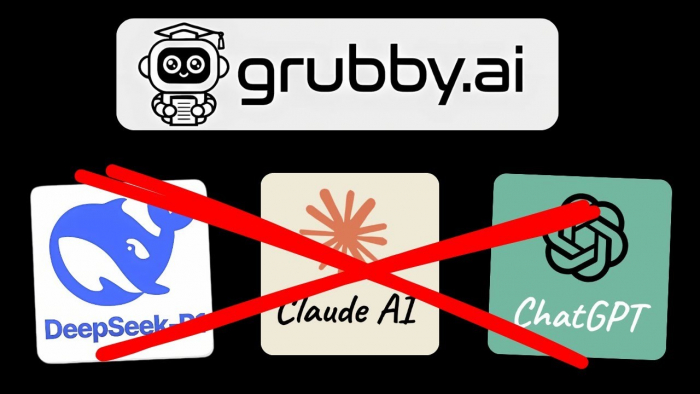The number of potential consumers globally has reached 4 billion as of 2024, and every business wants a piece of the pie. In this competitive environment, brand trust becomes crucial. Earning customer confidence can set a brand apart from competitors.
From secure connections to professional design, trust builds the foundation for lasting customer relationships. Businesses face unique challenges in projecting credibility online, especially in the startup phase. Unlike big brands with established reputations, they must work harder to prove reliability through every website interaction.
AI-driven solutions provide businesses with affordable, efficient ways to strengthen their websites. By automating tasks like security checks, content refinement, and trust signal updates, AI helps maintain a polished, trustworthy image.
This blog post explores how AI empowers businesses to enhance trust and credibility.

Key Trust Signals Every Website Needs
According to a PWC survey, 42 percent of executives state that customer engagement is endangered if there is no trust. Websites are often the first impression a customer has of any business, and certain elements in them signal reliability to visitors.
A secure connection, indicated by HTTPS and SSL certificates, is non-negotiable, with more than 82 percent of websites already using them, per a 2024 report. These protocols encrypt data, ensuring safe transactions and browsing. Businesses must prioritize secure hosting to display these trust markers prominently.
Clear “About” and “Contact” pages also build credibility. A 2023 Forbes article noted that customers seek transparent business information before engaging with or trusting companies. For instance, including detailed team bios, physical addresses, or responsive contact forms reassures visitors.
Customer reviews and testimonials further validate a business, as shoppers trust peer feedback over brand claims. Professional design with consistent branding ties these elements together, creating a cohesive, trustworthy appearance.
AI-Powered Tools That Improve Credibility
AI offers practical solutions to enhance website trust signals. Automated security scans, for instance, detect vulnerabilities like outdated plugins or weak passwords before they lead to breaches.
Consumer data and trust are interrelated. According to Forbes, 60 percent of customers stated that securing their data is the way to build trust. AI tools continuously monitor sites, alerting owners to risks and ensuring secure connections remain intact.
Content moderation and proofreading tools powered by AI ensure error-free, professional messaging. These tools scan for typos, grammar issues, or inappropriate tone in real time, maintaining a polished image. For example, AI can flag outdated product descriptions, keeping content fresh.
Additionally, AI-driven dynamic trust badges and seals adapt to user behavior, displaying relevant certifications like “Verified Secure” based on visitor location or device, boosting confidence without manual updates.
Using AI to Keep Trust Signals Current
Businesses often lack the resources to constantly monitor their websites for outdated content or technical issues. AI-based website builders can deploy trust elements like badges and testimonials to reflect the latest data, ensuring credibility without constant manual effort.
Hocoos notes that such automation helps entrepreneurs maintain a professional site, even with limited technical skills.
These AI solutions streamline tasks like refreshing customer reviews and ensuring up-to-date content. Also, 70 percent of Gen Z prefer to trust websites that have diverse content.
Automated checks also flag broken links or outdated trust seals, catching small errors that could undermine confidence. By reducing manual oversight, AI frees business owners to focus on growth while keeping their sites trustworthy and engaging.
Best Practices for Implementing AI Responsibly
To use AI effectively, start small by focusing on one trust signal, like automating security scans or proofreading content. This approach prevents overwhelm and allows businesses to master one tool at a time.
Measuring impact is crucial. Track metrics like bounce rates, time on page, or conversion rates to assess AI’s effectiveness. Businesses monitoring these metrics see a massive improvement in user engagement.
Transparency builds trust, so disclose AI usage in the site’s privacy policy or footer. For example, if you use an AI chatbot for customer queries, include a small note that AI handles chat responses to maintain openness.
Regularly review AI outputs to ensure accuracy, as overreliance without human oversight can lead to errors. These practices ensure AI enhances credibility without compromising authenticity.
Three Tips for Building Lasting Credibility
Building online trust is an ongoing process, and AI is a tool to support, not replace, human effort. First, prioritize secure connections with HTTPS and SSL to protect user data. Second, maintain clear, updated content through AI-driven proofreading and review aggregation. Third, use consistent, professional design to reinforce trust signals across the site
Businesses can adopt AI incrementally to sustain credibility. Regularly evaluating and refining these efforts ensures trust grows alongside the business.
Post Comment
Be the first to post comment!





